‘Too many deaths’: Indigenous mayors’ campaign for dedicated health service
A radical overhaul of healthcare in the Torres Strait and northern Cape York is being called for by First Nations leaders with lobbying to de-merge a major service in the region already underway.
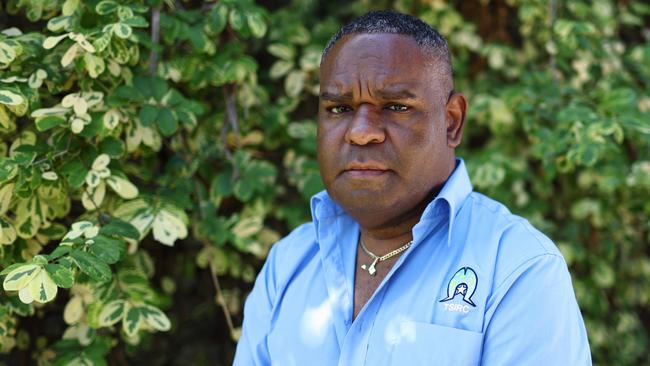
Cairns
Don't miss out on the headlines from Cairns. Followed categories will be added to My News.
A radical overhaul of healthcare in the Torres Strait and northern Cape York is being called for by First Nations leaders with lobbying to de-merge a major service in the region already underway.
But Health Minister Shannon Fentiman has warned that breaking up Torres and Cape Hospital and Health Service (TCHHS), just a decade after it was first formed, would lead to worse health outcomes in remote communities.
Frustrated Torres Strait mayors Elsie Seriat, Phillemon Mosby and Northern Peninsula Area Regional Council (NPARC) mayor Robert Poipoi said preventable deaths and a lack of culturally appropriate care within communities had been a concern for years.
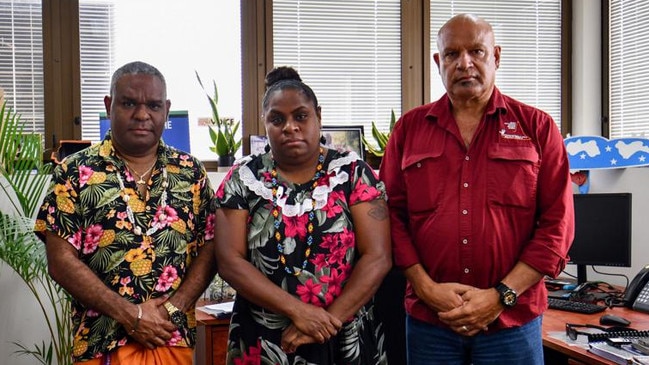
Mr Mosby, the Torres Strait Island Regional Council mayor, said the grief experienced on some islands had been overwhelming at times.
“It was unbearable,” Mr Mosby said, referring to a recent spate of deaths.
“I was really depressed. I was burying my auntie one week and my niece the next. We have customs to sit and mourn with family. People were divided.
“They didn’t know where to go because there were too many deaths.”
‘GOAL POSTS’ MOVED
After alerting former Premier Annastacia Palaszczuk in May last year, Mr Mosby said he, along with other community leaders, sought an independent commission of inquiry into the region’s health services.
When Queensland Health announced it would conduct an independent investigation in August instead, the mayor said he became disillusioned with the process.
“They said, ‘These are the goal posts’ and ‘This is how we deliver it’,” he said.
“Secondly, we said, ‘Okay. If you’re going to do it … we’re concerned as the democratically elected leaders who have a mandate (to our constituents) under the legislation.”
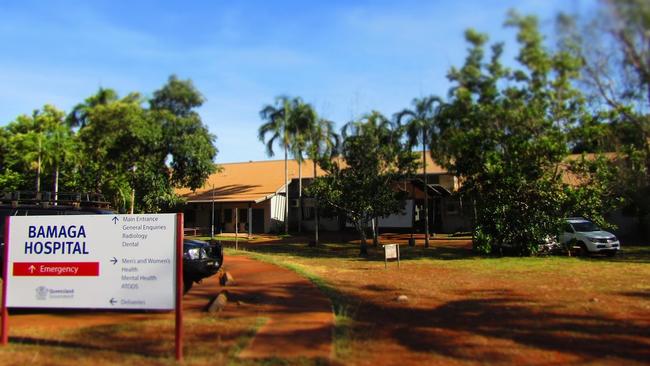
The independent investigation, led by Professor Cindy Shannon AM, was the best and quickest way to close the “unacceptable gap for First Nations Queenslanders” when it came to health, Ms Fentiman said.
“A commission of inquiry would take years,” she said. “We really needed to get to the heart of what more we can do to close the gap and improve health outcomes.”
But the Far North mayors said the report’s findings – released last week – didn’t go far enough.
“We wanted the investigation to determine what was responsible for the occurrence of these deaths,” he said.
“We wanted to stop the culling of our Indigenous population for an area of 15,000 people with three-to-four deaths every week and the psychological trauma it was having on our communities.”
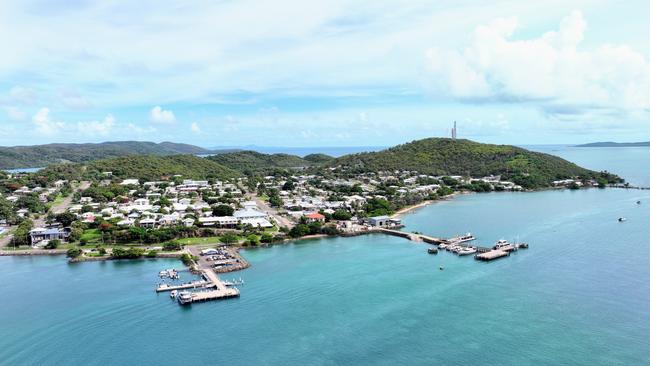
Passages of the report released by Queensland Health earlier this month supported some of Mr Mosby’s claims.
Significantly, the investigation found “no significant improvements in prevention and management of chronic disease” for First Nations patients over the last three decades.
Further, “ongoing high rates of potentially avoidable deaths and increasing hospitalisation rates for diabetes” represented the most significant cause of preventable hospitalisations.
The report also highlights some improvements, including the number of babies born in the Torres Strait with a healthy birth weight.
WE HAVE A MANDATE
Torres Shire Council’s Ms Seriat said community members had also advocated for a major shake up within the health service.
“What we want is deamalgamation,” she said. “We want it to come back to just the Torres and NPA health service. It worked before and it’s not working now.
“We have a mandate and we’re answerable to the people. This is what the people have wanted for a very long time and we, as leaders, are answerable to our people.”
Mr Poipoi, whose council contains five Indigenous communities, three of which are principally Aboriginal and two Torres Strait Islander, said the time was right to campaign for change.
“I stand strong in supporting this push,” the NPARC mayor said. “Our families aren’t being heard properly. We need a big improvement in our health system.”
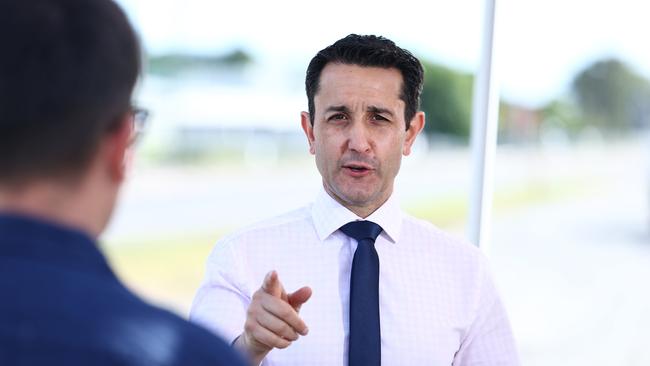
While stopping short of endorsing the mayors’ calls for de-amalgamation, Opposition Leader David Crisafulli said he would support giving regional health services greater autonomy, if elected.
“I’m a big believer in decentralisation,” Mr Crisafulli said.
“I don’t believe you’re ever going to heal the Queensland Health crisis if decisions continue to be brought back to Brisbane.”
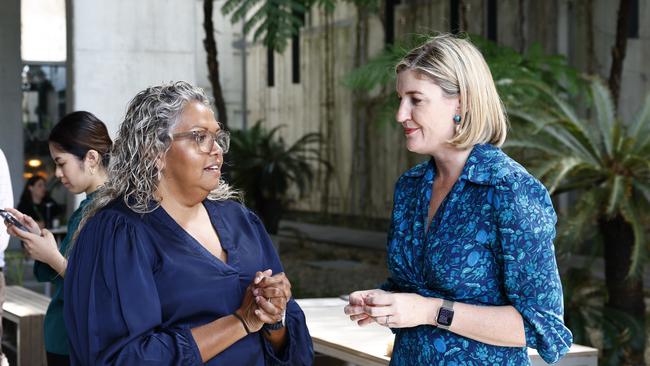
Ms Fentiman said she opposed splitting the Torres and Cape Hospital and Health Service in two.
“All the advice that I’ve received is that separating the Torres and Cape would not lead to better outcomes,” she said.
“The health services would be too small and you would not attract the staff needed to get safe clinical practice.”
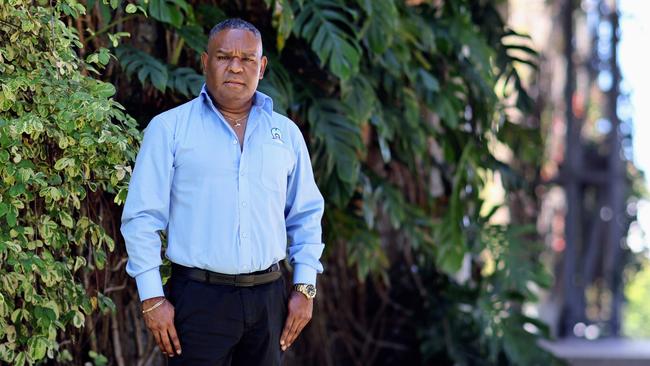
The culturally diverse region, made up of 18 inhabited islands and several remote communities based at the tip of Cape York, faced challenges unlike those experienced elsewhere in Australia.
“You’re working with people for whom English is their third or fourth language,” Mr Mosby said.
“They’re welfare dependent, they’re living in overcrowding and sharing an international border (with Papua New Guinea).
“When you take an urban or rural healthcare model and you place it in regions like the Torres Strait, what are the chances of that being successful?”
The second and final part of the report, which will review the cultural safety of health services for First Nations employees and those receiving care within TCHHS, will be released later this year.
Last week, Queensland Health announced it would provide an additional $1.4m to TCHHS to enhance its delivery of health services.
More Coverage
Originally published as ‘Too many deaths’: Indigenous mayors’ campaign for dedicated health service




